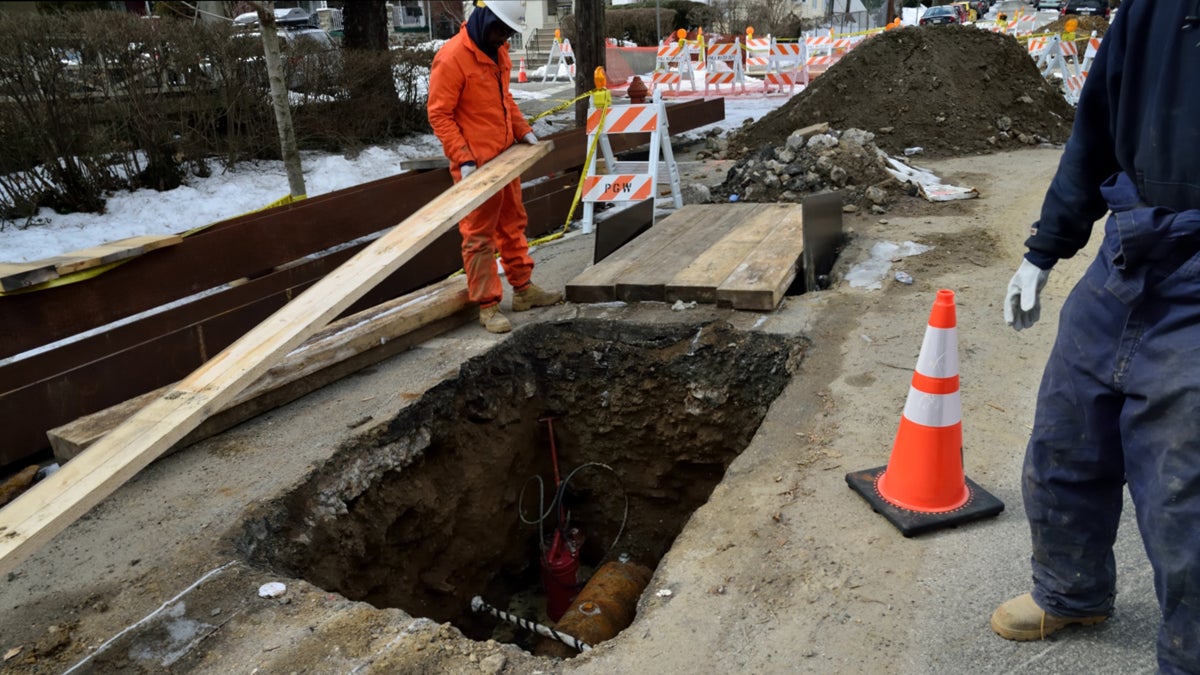Report: PGW second-worst for gas pipeline leaks

A PGW crew works at the intersection of E Durham St and Boyer St. in Philadelphia. (Bas Slabbers/for NewsWorks)
The private company planning to buy Philadelphia Gas Works has promised to upgrade the city’s aging and leaking pipelines. A new report by SNL Energy shows just how big that task could be, ranking the city’s utility second worst in the nation for pipeline leaks.
The firm looked at data from the federal Office of Pipeline Safety showing that in 2012, PGW reported 5,464 leaks over its 5,762 miles of gas mains and service lines. That’s a rate of nearly one leak (0.95) per mile.
Philadelphia Gas Works spokesman Finbar O’Sullivan says some of the city’s original natural gas pipelines were made from hollowed-out tree trunks. Those lines haven’t been used in more than one hundred years. Today, about half of Philadelphia’s pipelines are made of cast-iron and unprotected steel, some are more than a century old.
O’Sullivan attributes the leaks to the changing urban landscape above the pipelines.
“You might put in a pipeline in a nice quiet road, then some years later that might be a main thoroughfare,” he said, noting water damage from frosts and floods is another common cause for corrosion and cracks.
The city has slowly been replacing its cast-iron pipelines with ones made of tougher plastic and coated steel, but the pace is hindered by the cost. O’Sullivan says replacing one mile of a cast-iron gas main can cost replacing a single mile of cast-iron gas main can cost about $1 million.
“We’ve been replacing cast-iron mains for well over 20 years,” he said.
The city recently announced a deal to sell PGW to Connecticut-based UIL Holdings Corp. for $1.86 billion. At the current pace of 25 miles per year, replacing Philadelphia’s old pipes will take 88 years. UIL spokesman Michael West says the company can get it done in half the time.
“We can make the case to our investors why this is important and if we establish a rate base, those costs will be spread over a number of years,” West said. “We can get access to capital to make investments in a different fashion than a municipal utility could and therefore, be able to expedite the process.”
That may be a bargaining chip as the City Council debates the sale.
This article has been updated to reflect the following correction: PGW spokesman Finbarr O’Sullivan says the cost to replace one mile of cast-iron gas main actually costs approximately $1 million, not $250,000.
WHYY is your source for fact-based, in-depth journalism and information. As a nonprofit organization, we rely on financial support from readers like you. Please give today.

